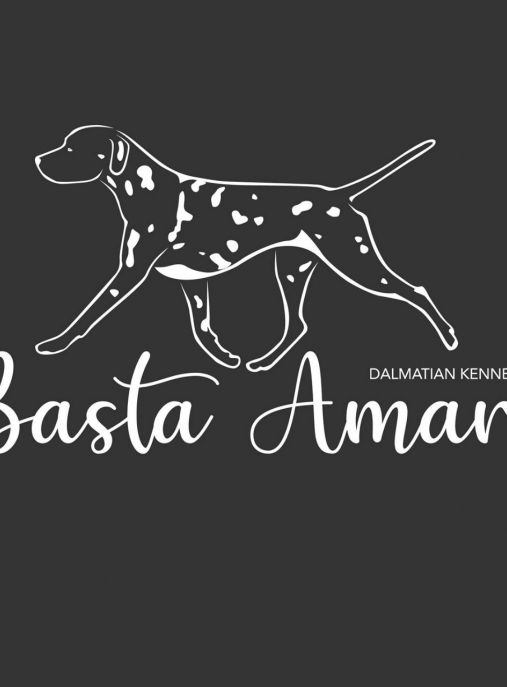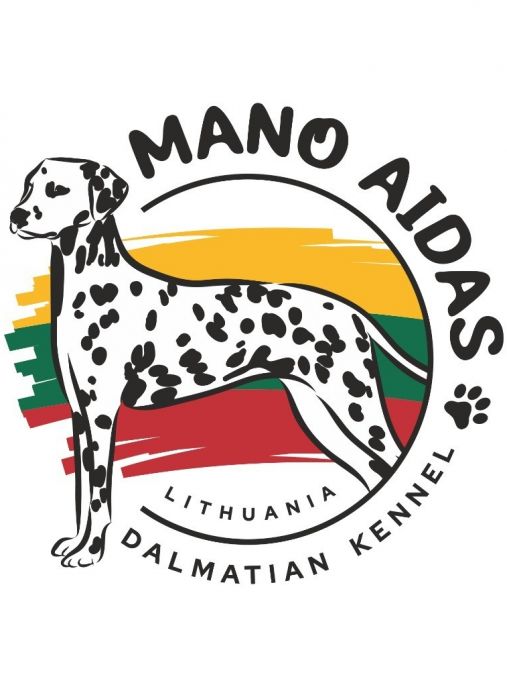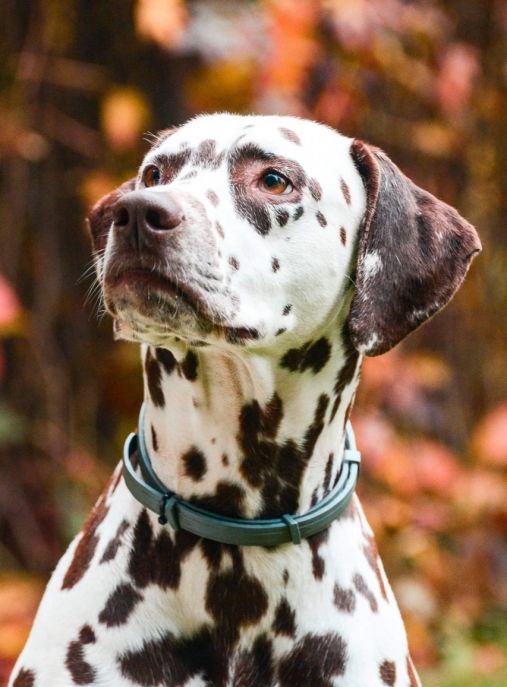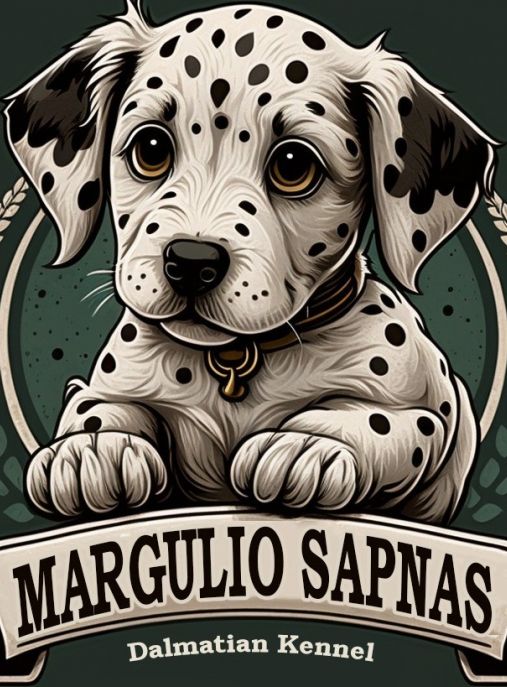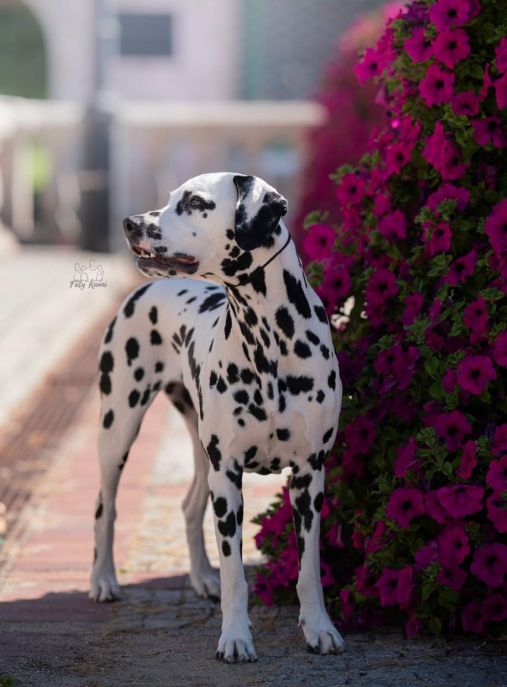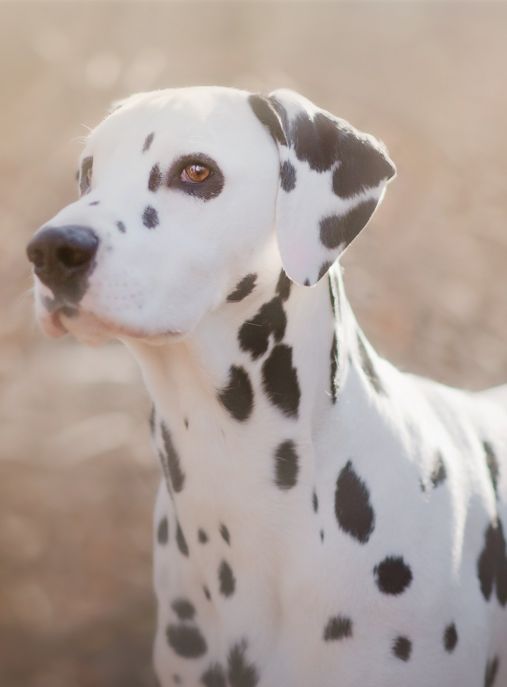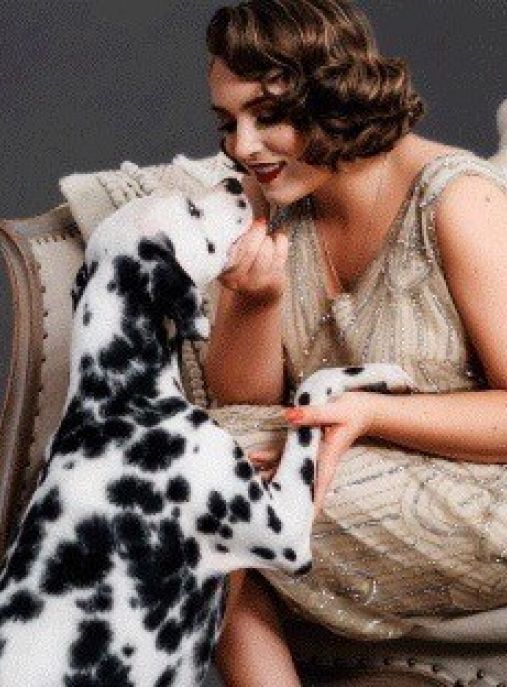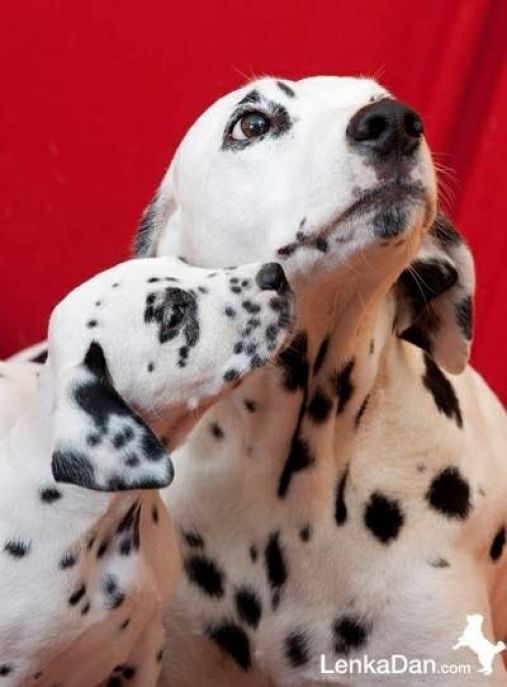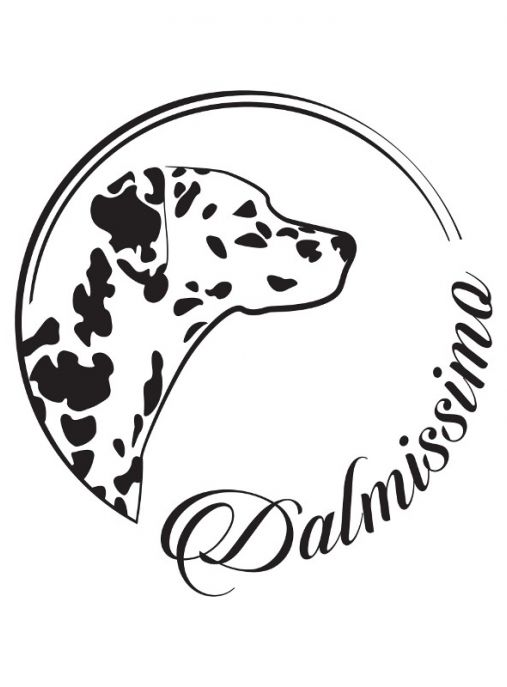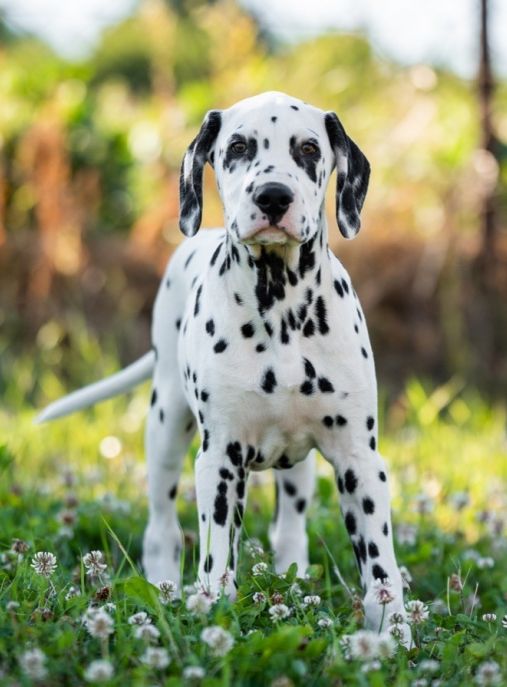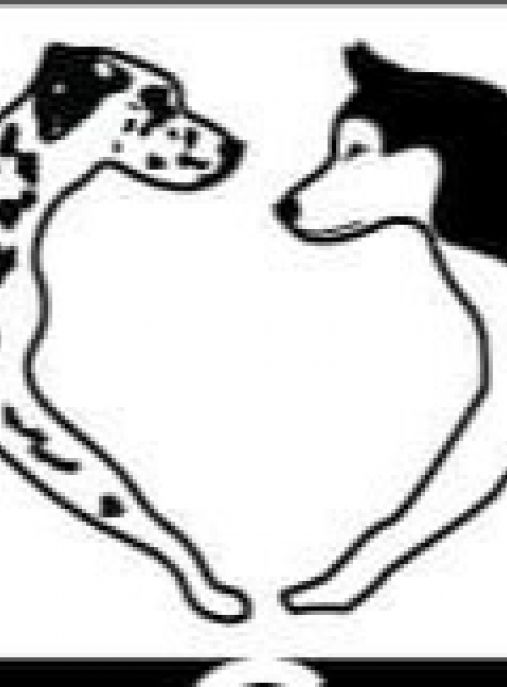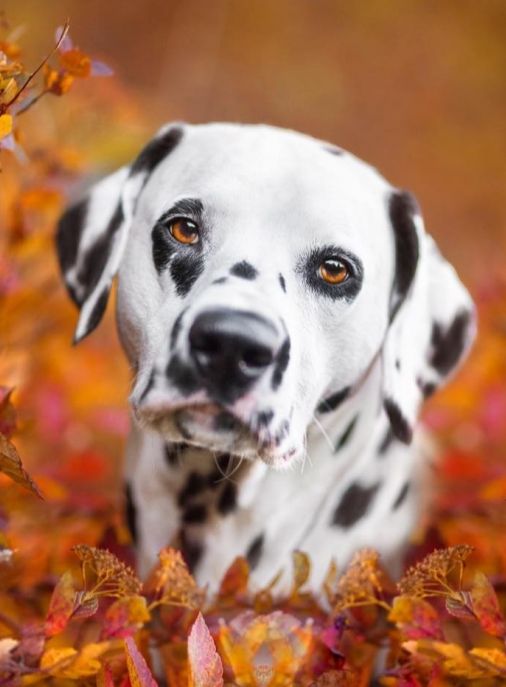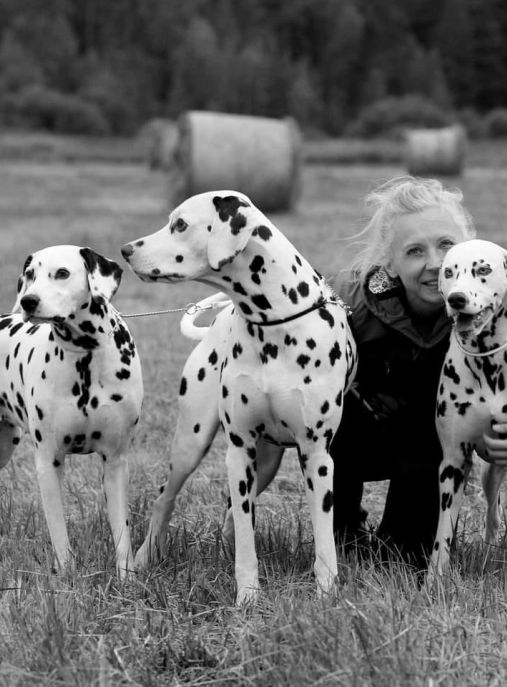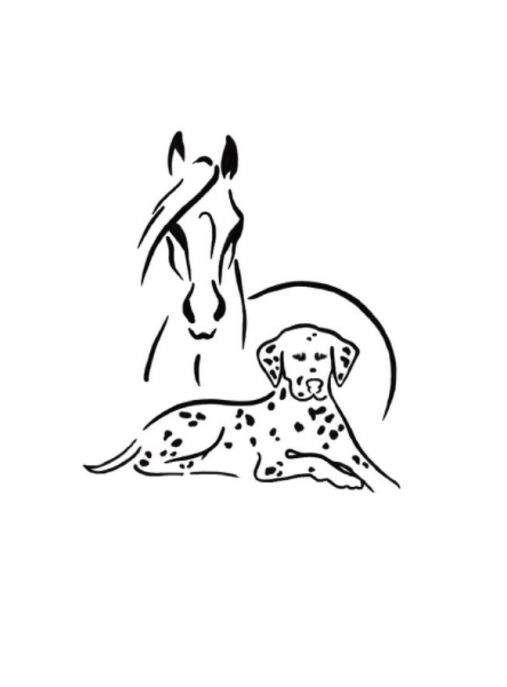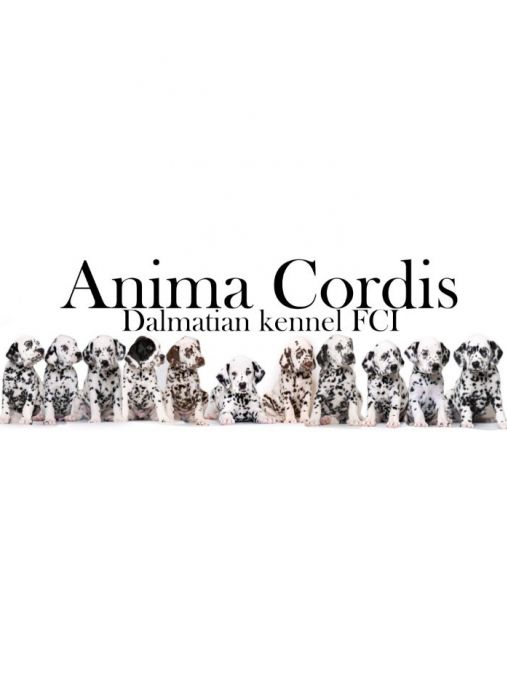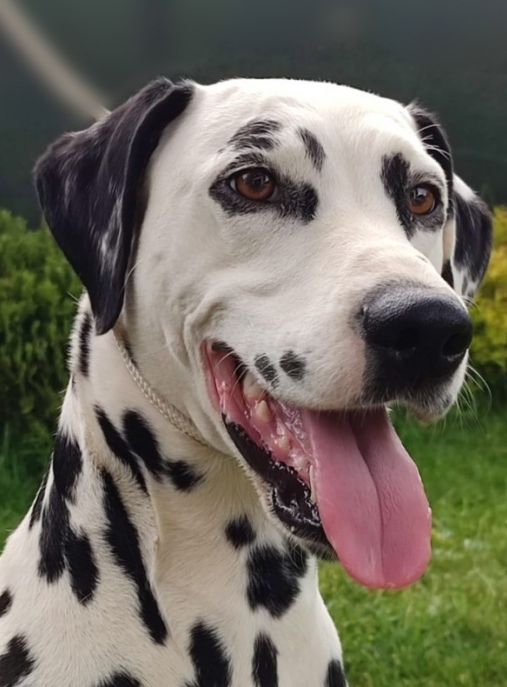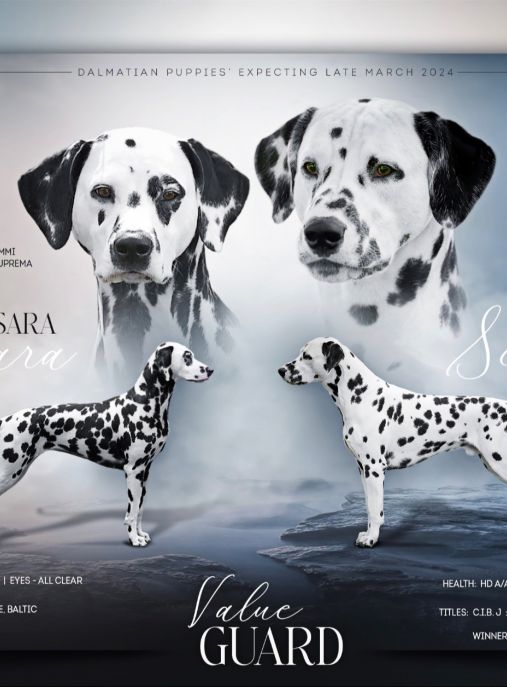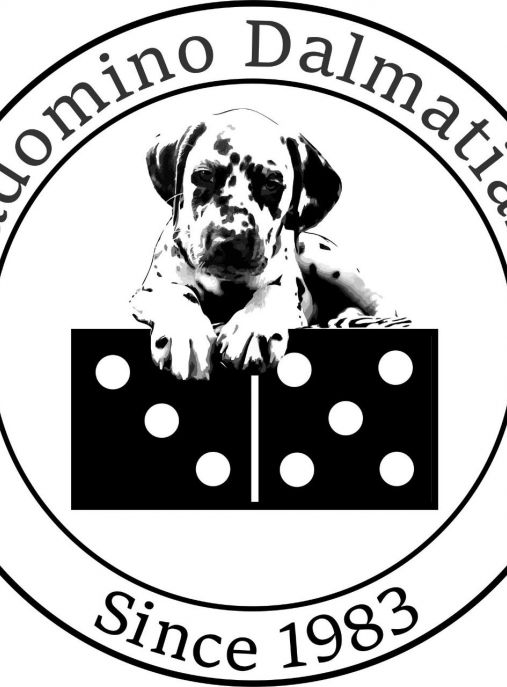The Dalmatian dog breed is instantly recognizable with its distinctive coat pattern of black or liver spots on a white background. Known for their elegance, athleticism, and unique appearance, Dalmatians have captured the hearts of dog lovers worldwide. This breed is not only beloved for its striking coat but also for its friendly and outgoing nature, making it a popular choice for families and individuals alike.
The history of the Dalmatian breed is shrouded in mystery, with various theories surrounding its origin. Some believe that Dalmatians originated in Dalmatia, a region in modern-day Croatia, while others suggest that they have ancient roots in Egypt. However, the most widely accepted theory is that Dalmatians were developed in England during the 18th century.
Dalmatians belong to the FCI (Fédération Cynologique Internationale) Group 6: Scenthounds and Related Breeds. Within this group, they are classified under Section 3: Related breeds, alongside the English Pointer, German Shorthaired Pointer, and Weimaraner. This classification highlights the breed's hunting and pointing abilities, which were historically utilized for various purposes.
While Dalmatians were initially bred as hunting dogs, they have since found their place in various roles. They are known for their exceptional endurance and agility, making them excellent competitors in dog sports such as agility, obedience, and flyball. Additionally, Dalmatians have become popular as therapy dogs, search and rescue dogs, and even as firehouse mascots due to their association with firefighting.
In terms of physical characteristics, Dalmatians are medium-sized dogs with a well-muscled and athletic build. Males typically stand between 22 to 24 inches (56 to 61 cm) at the shoulder, while females are slightly smaller, ranging from 20 to 22 inches (51 to 56 cm). Their weight generally falls between 45 to 70 pounds (20 to 32 kg), with males being slightly heavier than females.
The average lifespan of a Dalmatian is around 10 to 13 years, although with proper care and a healthy lifestyle, some individuals have been known to live even longer. It is important to note that Dalmatians are prone to certain health issues, including deafness, urinary stones, and allergies. Responsible breeders conduct hearing tests on puppies to identify any hearing impairments and ensure they are placed in suitable homes.
One of the most fascinating aspects of Dalmatians is their unique coat pattern. The spots on their coat can be either black or liver (brown) in color, and they are evenly distributed across their body. Interestingly, Dalmatian puppies are born completely white and develop their spots as they grow older. The spots can vary in size and shape, ranging from small dots to larger patches.
Another interesting fact about Dalmatians is their association with horses and firefighting. Historically, Dalmatians were often seen accompanying horse-drawn carriages, serving as guard dogs and protecting the horses from potential threats. This association led to their popularity among firefighters, who would keep Dalmatians in firehouses as mascots and companions. Even today, Dalmatians are often associated with fire departments and can be seen participating in parades and events.
In conclusion, the Dalmatian breed is a unique and captivating dog breed with a rich history and distinctive appearance. Their friendly and outgoing nature, coupled with their athleticism and versatility, make them suitable companions for various lifestyles. Whether as a family pet, a competitive athlete, or a therapy dog, Dalmatians continue to bring joy and excitement to the lives of their owners.
Dalmatians are a unique and charismatic breed of dog known for their distinctive coat pattern and playful nature. With their striking spots and elegant appearance, they have captured the hearts of many dog lovers around the world. However, beneath their beautiful exterior lies a complex and energetic character that requires careful understanding and training.
One of the most notable traits of Dalmatians is their high energy level. These dogs are known for their boundless enthusiasm and love for physical activities. They thrive in an environment that provides them with plenty of exercise and mental stimulation. Regular walks, runs, and playtime are essential to keep them happy and prevent boredom, which can lead to destructive behavior.
Dalmatians are also highly intelligent dogs. They possess a sharp mind and a quick learning ability, making them excellent candidates for various training activities. However, their intelligence can sometimes lead to stubbornness, so consistent and patient training methods are necessary. Positive reinforcement techniques, such as treats and praise, work best with this breed, as they respond well to rewards and encouragement.
Socialization is crucial for Dalmatians from an early age. They are naturally friendly and sociable dogs, but proper socialization helps them develop into well-rounded and confident individuals. Exposing them to different people, animals, and environments will help prevent any potential behavioral issues, such as shyness or aggression, later in life.
Dalmatians are known for their love of attention and affection. They thrive on human companionship and enjoy being part of a family. They are loyal and protective, making them excellent watchdogs. However, their protective nature can sometimes lead to excessive barking, so early training to control this behavior is essential.
While Dalmatians are generally good with children, they may not be the best choice for families with very young kids. Their high energy levels and exuberant nature can sometimes be overwhelming for small children. Supervision and teaching children how to interact appropriately with dogs are crucial to ensure a harmonious relationship.
Grooming a Dalmatian is relatively easy due to their short coat. Regular brushing helps keep their coat healthy and reduces shedding. However, they are prone to certain health issues, such as deafness and urinary stones, which are more common in this breed. Regular veterinary check-ups and a balanced diet are essential to maintain their overall health and well-being.
In conclusion, Dalmatians are energetic, intelligent, and affectionate dogs that require an active and stimulating lifestyle. They thrive in a loving and structured environment with consistent training and socialization. With the right care and attention, Dalmatians can make wonderful companions and bring joy to any household.
Dalmatians are a unique and beautiful breed known for their distinctive coat pattern and energetic personality. Caring for a Dalmatian requires a specific set of guidelines to ensure their physical and mental well-being. In this text, we will provide you with an extensive description of the recommended care for Dalmatian dogs, including tips on what to do and what not to do.
First and foremost, Dalmatians are an active breed that thrives on exercise and mental stimulation. Regular exercise is crucial to prevent boredom and destructive behavior. Aim for at least 60 minutes of physical activity per day, which can include walks, runs, or engaging in dog sports like agility or obedience training. Mental stimulation can be achieved through puzzle toys, obedience training, or interactive play sessions.
Dalmatians have a short, dense coat that requires regular grooming. Brushing their coat at least once a week will help remove loose hair and keep their skin healthy. However, be cautious not to over-bathe them, as excessive bathing can strip their coat of natural oils and lead to dry skin. Aim for bathing your Dalmatian every 6-8 weeks or as needed, using a mild dog shampoo.
Another important aspect of Dalmatian care is their diet. These dogs have specific dietary needs, and it is essential to provide them with high-quality, balanced dog food. Look for a brand that is specifically formulated for Dalmatians or other medium to large breeds. Dalmatians are prone to urinary issues, so it is crucial to monitor their water intake and provide fresh water at all times.
When it comes to training, Dalmatians are intelligent and eager to please. Positive reinforcement training methods work best for this breed, using treats, praise, and rewards to motivate them. Consistency and patience are key, as Dalmatians can be stubborn at times. Early socialization is also crucial to ensure they grow up to be well-rounded and friendly dogs.
While caring for Dalmatians, it is important to be aware of certain health concerns that are more prevalent in this breed. Dalmatians are prone to deafness, so regular hearing tests are recommended. They are also more susceptible to urinary stones, so a diet low in purines is essential. Regular veterinary check-ups and vaccinations are crucial to maintain their overall health.
When it comes to what not to do in the care of Dalmatians, avoid leaving them alone for extended periods as they are prone to separation anxiety. They thrive on human companionship and can become destructive or develop behavioral issues if left alone for too long. Additionally, avoid exposing them to extreme temperatures, as they are sensitive to both hot and cold weather.
In conclusion, caring for a Dalmatian requires dedication, time, and attention to their specific needs. Regular exercise, mental stimulation, proper grooming, and a balanced diet are essential for their overall well-being. Training with positive reinforcement, early socialization, and regular veterinary care are also crucial. By following these guidelines and avoiding common pitfalls, you can provide your Dalmatian with a happy, healthy, and fulfilling life.
The Dalmatian dog breed is renowned for its distinctive coat pattern, which consists of a white base color adorned with black or liver spots. However, when it comes to the common color of Dalmatians, it is predominantly white. The white coat serves as a canvas for the striking spots that give these dogs their unique appearance.
The white color of Dalmatians is often described as pure and pristine. It is a bright and clean shade that exudes elegance and sophistication. The white coat is typically evenly distributed across the dog's body, creating a harmonious and balanced appearance. This color choice is not only visually appealing but also serves a practical purpose, as it allows Dalmatians to be easily spotted in low-light conditions.
The white color of Dalmatians is not only limited to their fur but also extends to their skin, nose, and paw pads. This uniformity in color adds to the overall aesthetic appeal of the breed. The white coat is often associated with purity, innocence, and cleanliness, which further enhances the Dalmatian's charm.
While the white color is the dominant hue in Dalmatians, it is the spots that truly make them stand out. The spots can vary in size, shape, and color, depending on the individual dog. The most common spot colors are black and liver. Black spots are the traditional and iconic choice, contrasting beautifully against the white background. They create a striking visual effect and give Dalmatians their instantly recognizable appearance.
On the other hand, liver spots offer a unique twist to the Dalmatian's color palette. These spots are a rich, deep brown color that adds warmth and depth to the coat. Liver spots are less common than black spots but equally captivating, creating a more subtle and refined look.
The spots on a Dalmatian's coat are not limited to a specific pattern. They can be scattered randomly or arranged in various patterns, such as patches, rosettes, or even rings. This diversity in spot patterns adds to the individuality and charm of each Dalmatian, making them truly one-of-a-kind.
In conclusion, the common color of Dalmatian dogs is predominantly white. This white coat serves as a canvas for the striking black or liver spots that adorn their bodies. The white color is pure, clean, and visually appealing, while the spots add character and uniqueness to each individual Dalmatian. Whether it's the classic black spots or the rich liver spots, the combination of white and spots creates a stunning and iconic appearance that has made Dalmatians beloved around the world.
Dalmatians are a unique and beautiful breed known for their distinctive coat pattern and energetic nature. While they are generally healthy dogs, there are a few common health issues that can affect Dalmatians. Understanding these conditions and taking proper care can help ensure the overall health and well-being of these beloved pets.
One of the most well-known health concerns in Dalmatians is urinary tract problems. These dogs have a genetic predisposition to forming urinary stones, specifically urate stones. This condition, known as Dalmatian Syndrome, occurs due to the breed's inability to effectively metabolize purines, resulting in the accumulation of uric acid in the urine. This can lead to the formation of stones in the bladder or kidneys, causing discomfort, pain, and potentially life-threatening blockages.
To prevent urinary tract problems, it is crucial to provide Dalmatians with a balanced diet that is low in purines. Feeding them a specially formulated diet that is specifically designed for Dalmatians can help reduce the risk of stone formation. Additionally, ensuring they have access to fresh water at all times is essential to maintain proper hydration and dilute the urine.
Another common health issue in Dalmatians is deafness. Approximately 30% of Dalmatians are born with some degree of hearing loss, often due to a genetic mutation that affects the development of the inner ear. Deafness can be unilateral (affecting one ear) or bilateral (affecting both ears). It is important to note that deafness does not affect a Dalmatian's quality of life, as they can still lead happy and fulfilling lives with proper training and care.
Regular veterinary check-ups are crucial for Dalmatians to detect any potential health issues early on. Routine examinations can help identify conditions such as allergies, skin problems, or eye disorders, which can occasionally affect this breed. Additionally, vaccinations, parasite prevention, and dental care should be a part of their regular healthcare routine.
Exercise is vital for Dalmatians, as they are an active and energetic breed. Regular physical activity helps maintain a healthy weight, promotes cardiovascular health, and prevents behavioral problems that may arise from pent-up energy. Daily walks, runs, or play sessions in a secure and spacious area are recommended to keep them mentally and physically stimulated.
Grooming is also an essential aspect of Dalmatian care. Their short coat requires regular brushing to remove loose hair and prevent matting. Additionally, regular ear cleaning and nail trimming should be included in their grooming routine.
Lastly, providing a loving and stimulating environment is crucial for the overall well-being of Dalmatians. They thrive on human companionship and can become anxious or destructive if left alone for extended periods. Mental stimulation through interactive toys, training sessions, and socialization with other dogs can help prevent behavioral issues and ensure their emotional health.
In conclusion, while Dalmatians are generally healthy dogs, they are prone to certain health conditions such as urinary tract problems and deafness. By providing a balanced diet, regular veterinary care, exercise, grooming, and a loving environment, Dalmatian owners can ensure the optimal health and happiness of their furry companions.
Dalmatian dogs are known for their unique coat pattern and energetic nature. When it comes to their nutrition, it is essential to provide them with a well-balanced diet that meets their specific needs. Proper nutrition plays a vital role in maintaining their overall health and preventing certain health conditions that are more common in this breed.
One of the most important aspects of feeding a Dalmatian is understanding their unique dietary requirements. Unlike other breeds, Dalmatians have a predisposition to urinary tract issues, specifically the formation of urinary stones. This is due to their inability to metabolize purines effectively, resulting in the accumulation of uric acid in their urine. Therefore, it is crucial to take certain precautions when selecting their diet.
To prevent the formation of urinary stones, it is recommended to feed Dalmatians a low-purine diet. This means avoiding foods that are high in purines, such as organ meats (liver, kidney), certain fish (sardines, anchovies), and legumes (lentils, beans). Instead, opt for high-quality commercial dog food that is specifically formulated for Dalmatians or dogs with urinary issues. These diets are usually low in purines and contain the right balance of nutrients to support their overall health.
When selecting commercial dog food, always check the ingredient list. Look for high-quality protein sources like chicken, turkey, or lamb. Avoid foods that contain by-products, artificial preservatives, colors, or flavors. It is also important to ensure that the food meets the standards set by reputable organizations like the Association of American Feed Control Officials (AAFCO).
In addition to a balanced diet, Dalmatians require plenty of fresh water to maintain proper hydration. Adequate water intake is crucial for diluting their urine and reducing the risk of stone formation. Make sure to provide clean water at all times and encourage your Dalmatian to drink regularly.
While a well-balanced diet is essential, it is equally important to avoid overfeeding your Dalmatian. Obesity can exacerbate urinary issues and put additional strain on their joints. Follow the feeding guidelines provided by the dog food manufacturer and monitor your dog's body condition regularly. Adjust the portion sizes accordingly to maintain a healthy weight.
Apart from their regular meals, Dalmatians can also benefit from occasional healthy treats. However, be cautious about the ingredients in the treats and avoid those that are high in purines or contain excessive amounts of salt, sugar, or artificial additives. Opt for natural treats like carrots, apple slices, or commercially available low-purine treats.
In conclusion, feeding a Dalmatian requires special attention to their unique dietary needs. A low-purine diet, plenty of fresh water, and portion control are key factors in maintaining their overall health and preventing urinary issues. Always consult with your veterinarian for specific dietary recommendations based on your Dalmatian's age, weight, and overall health. By providing them with a nutritious and balanced diet, you can ensure that your Dalmatian thrives and enjoys a happy and healthy life.
